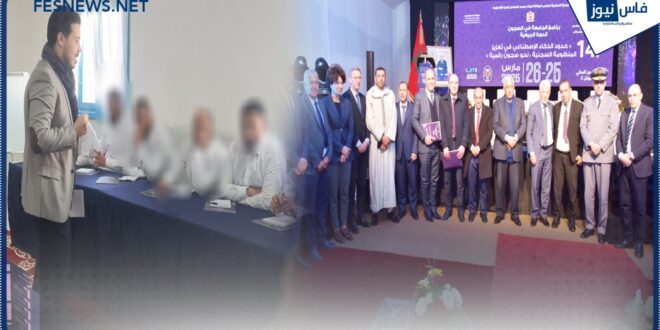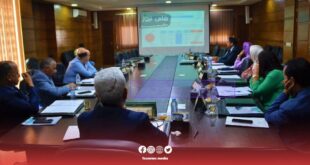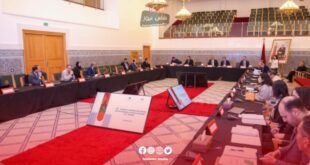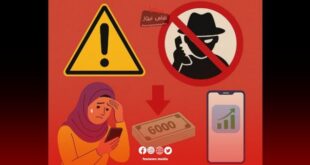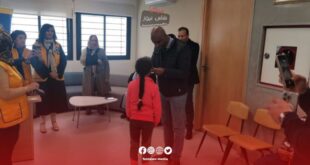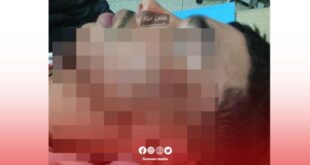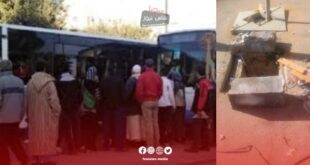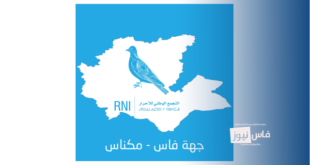As part of pioneering initiatives aimed at enhancing inmate reintegration and modernizing the prison system in Morocco, the local prison of Toulal 2 in Meknes hosted the 14th edition of the “University in Prisons” program on March 25 and 26, 2025. The program, organized in partnership with Moulay Ismail University in Meknes, falls under the initiatives the General Delegation for Prison Administration and Reintegration is keen to implement. The event was held under the esteemed patronage of His Majesty King Mohammed VI, aligning with royal directives aimed at improving the prison system and strengthening administrative reform at both the national and regional levels.
The program saw the participation of prominent professors and specialists from various fields, as well as several officials, who contributed to enriching discussions and sharing experiences on the latest developments in the prison system. In a special statement, Mr. Aziz Al-Akhl, Director of Toulal 2 Prison, confirmed that the program is one of the significant initiatives the General Delegation has been implementing since the sixth edition. He added that the program has yielded notable positive results, with more than 2,397 inmates participating as students in prison since its inception, reflecting the initiative’s success in enhancing education and training within prisons.
Mr. Al-Akhl further highlighted that this edition saw the signing of several cooperation and partnership agreements with government bodies and civil associations, contributing to the improvement of the human rights and reform conditions of inmates. He also mentioned that the current edition focused on a highly important theme: “The Limits of Artificial Intelligence in Enhancing the Prison System Towards Digital Prisons,” pointing to the future trend of digitizing prisons and applying artificial intelligence techniques to improve the governance of prison institutions and ensure the rights of inmates.
The event began with specialized workshops in various fields related to the applications of artificial intelligence in prisons. The first workshop, titled “Artificial Intelligence and Social Relations,” was led by Dr. Rashid Al-Othmani, Dr. Mohamed Al-Fadli, and Dr. Al-Tabaqa Al-Diyani from the Faculty of Law and Economics in Meknes. The discussion centered on the impact of artificial intelligence on human and social relationships inside prisons and how it can be utilized to improve inmate interactions with each other and with their supervisors.
The second workshop, titled “Artificial Intelligence and Emotional Intelligence,” was conducted by Dr. Abdelilah Hilali and Dr. Aziz Al-Barouni from the Faculty of Arts in Meknes. This session discussed how artificial intelligence can be used to understand and analyze the emotional intelligence of inmates and its role in improving the prison environment and enhancing emotional interaction and social reintegration for inmates.
In the third workshop, the topic “Artificial Intelligence and Legal Responsibility” was discussed, moderated by Dr. Hicham Al-Hamouni, Dr. Abdelkader Bobkri, and Ms. Munia Al-Ghamri from the Faculty of Law and Economics in Meknes. This workshop addressed the legal challenges associated with using artificial intelligence in prison institutions, including the protection of inmates’ legal rights and determining responsibility in case of mistakes or misuse of the technology.
The fourth workshop, titled “The Educational and Pedagogical Dimension of Artificial Intelligence,” was led by Dr. Zakaria Karno, a digital law expert, Dr. Mohamed Boumediene, and Ms. Nada Al-Qari from the Faculty of Law and Economics in Meknes. This session focused on ways to use artificial intelligence to improve educational programs in prisons and provide new learning opportunities for inmates, enhancing their chances of societal reintegration.
The second day of the program featured a welcoming ceremony and a communal breakfast, offering participants an opportunity to interact and exchange ideas in an atmosphere of camaraderie and cooperation.
The 14th edition of the “University in Prisons” program reflects the continued success of this initiative, which aims to improve the educational and human rights conditions of inmates. By engaging with artificial intelligence technologies and applying them within the prison system, this program represents a significant step towards modernizing and developing Morocco’s prison institutions. Enhancing governance and transparency within prisons is considered a core pillar of reforming the prison system and ensuring inmates’ rights, in line with the royal strategy to establish digital prisons based on the latest technologies in managing inmates, contributing to improving educational and reformative conditions in these institutions.
source : fesnews media
 فاس نيوز ميديا جريدة الكترونية جهوية تعنى بشؤون و أخبار جهة فاس مكناس – متجددة على مدار الساعة
فاس نيوز ميديا جريدة الكترونية جهوية تعنى بشؤون و أخبار جهة فاس مكناس – متجددة على مدار الساعة

